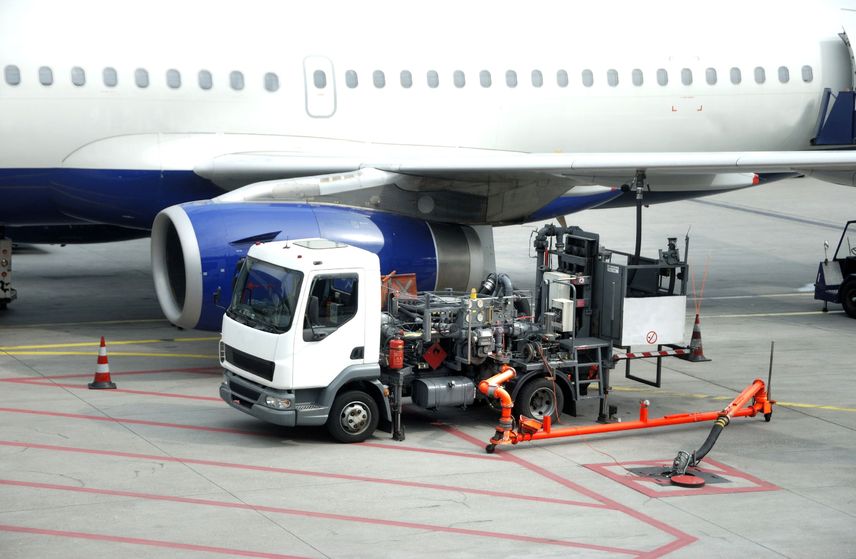Ten airlines combined to lose $4.65 billion on fuel hedging this year. Half of the losses belong to Lufthansa and to British Airways parent IAG. Germany bailed out a financial derivatives trading firm, as much as an airline.
The intertemporal carry trade was potentially extremely lucrative when some oil prices went negative, but there was only a very limited number of companies in the world that could benefit from it. Those negative prices were for near-term delivery of oil. Prices went negative because speculators risked having to take actual delivery of the oil and were forced to pay big premiums to exit their positions. It’s only those companies in a position to store crude that could win on that trade.
There were plenty of calls for airlines to hedge as oil prices dropped during the pandemic, but remember that airlines:
- Would actually be paying a higher price for later-delivery contracts
- Would have to pay the cost of the contracts themselves, or reduce their upside with corresponding additional trades to generate financing
- Had to have some sense of how much fuel they could actually use but were facing unprecedented uncertainty over future schedules
- Could lose out on opportunities for oil to go lower, or even stay the same without the extra hedging expense

Copyright vanbeets / 123RF Stock Photo
Southwest long benefited from its fuel hedges, until they didn’t, and when they didn’t it was evil GAAP accounting’s fault. Southwest has lost up to a billion dollars on fuel hedges in a year.
When United lost over half a billion dollars in a single quarter on fuel hedges in 2008 they decried the evils of oil speculation with no irony whatsoever. And they continued their fuel hedging – badly.
US Airways management has stayed out of the hedging game since 2008 and brought the same philosophy to American. Instead of ‘locking in the price of fuel’ they’ve said they believe ticket prices move in tandem with fuel prices so when fuel prices rise they’re best able to meet that expense. To be sure they’d be better off with a good hedge, but that begs the question. Not hedging avoids the bad hedges.
Four years ago Delta’s Vice President of Fuel was even caught front running his own trades and pocketing $3 million in his wife’s account.
The relevant question is does any given airline have a strong commodities trading capability? Or do they just think that they do? There are real expert traders who do nothing else who get killed on this as often as they don’t.


When you’re a long term purchaser of a commodity (as an airline is of oil), the only purpose of continual hedging (as opposed to ocassional hedging which is a bet on price changes) is to smooth the cost of the commodity over time and, thus, the quarterly earining the hedger reports. Because the hedge itself has a cost, I’ve always thought it’s a waste of shareholder money to be a perpetual hedger. Others, who value stable earnings more than I do, would disagree.
Negative WTI prices were an anomaly, as some trader made a boo-boo, and was stuck having to pay somebody to take the oil contracts off their hands before the contract closed, because WTI futures are physically settled. At the same time, Brent prices did not collapse, because they are financially settled (in other words, cash settled). Similarly, WTI 2nd months contracts also did not collapse and the Energy Information Administration forecast of annual WTI price did not collapse.
Only thing Doug Parker has been right on: not trying to duplicate the limited success WN had a decade ago on fuel hedging. Never understood the point of hedging. If you had a bad quarter due to fuel prices, you call still attribute the loss to the Street on fuel as compared to poor operational performance.
Get ready for “Fuel Hedge Surcharges”
@jerry they pay a price to reduce variance. Most companies do. They want to plan routes, staffing etc.
About a decade ago, Doug Parker proved that fuel hedging was a bad strategy for airlines (mostly because of the high cost of the hedges meant you lose money something like 80% of the time) and almost all USA airlines stopped hedging fuel. But many int’l carriers persisted. My guess is that persistence has now ended, and almost no airlines will hedge in the future.
fyi, you left off the first h in the link
They should be banned by law from hedging. Hopefully the CARES act includes this … oh, who am I kidding, it was written by bankers!
> Get ready for “Fuel Hedge Surcharges”
Thanks for the laugh. But probably they will come.
Lol, you are locking in a price say $50…. If oil rises to $80 you make $30 on your hedge (protecting an oil user from getting hurt on upticks). If oil drops to $20 you lose $30 on your hedge. But make on oil being cheaper…. Either way you lock in $50.
There is no “shock horror, airlines lose x on hedges…..”
Hedging is only used to to limit risk: to clearly define the cost of a fluctuating commodity for a defined future use. We use commodity /future contracts for this purpose so clearly define the margin on a project so it does not fluctuate.
Anything beyond this is speculation with all the risk.
Countries like Mexico actually make opposing trades where they have the option to sell at a given price as insurance due to these drastic price drops.